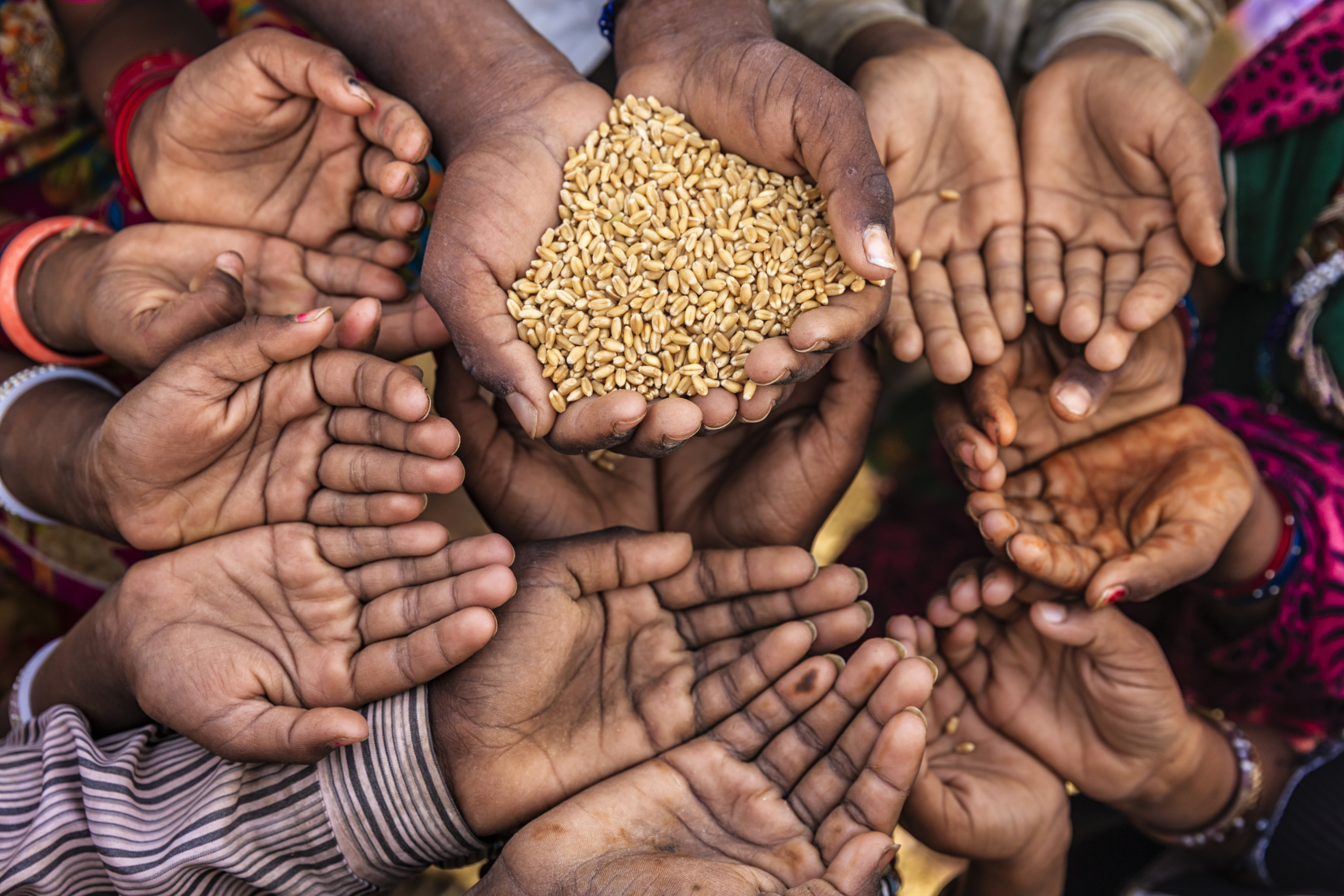U.S. Industry Stays Engaged in Food Aid, Development Conversation
By Elizabeth Westendorf, USW Policy Specialist
This year, for the first time, USDA and USAID held their International Food Assistance and Food Security Conference in conjunction with the 2016 World Food Prize event in Des Moines, IA, the week of Oct. 10. The two-day event brought together people from commodity organizations, NGOs, government and academic institutions to discuss future food aid and development programming and opportunities for improvement. Representatives from USW, the National Association of Wheat Growers (NAWG) and from wheat commissions in Oklahoma, Nebraska and South Dakota attended the conference and hosted an exhibit detailing the importance of wheat to food aid and food security.
As part of the conference program, two representatives from the Jordanian government talked about their important work with wheat monetization through USDA’s Food for Progress program. Monetization is a process that funds development projects with the sale of donated U.S. commodities. The proceeds from a 2012 wheat monetization program went to Jordan’s Al-Karak Dam project, which is nearing completion. The proceeds from a second wheat monetization in 2015 were split between 10 different projects that focus on water conservation amid the country’s rising refugee populations.
Conferences like this one allow USW to connect with implementers of food aid programs and discuss how best to improve communication and commodity use efficiency. Wheat makes up, on average, 40 percent of all in-kind U.S. food aid. In marketing year 2015/16, 710,100 MT of wheat were exported for donation in food aid programs, including 410,000 MT to Ethiopia alone to help prevent famine during a historic drought. That is why U.S. wheat farmers and the organizations that represent them remain dedicated to ensuring that these programs work well and continue to be a focus for the U.S. government.
The USDA-USAID conference preceded the annual World Food Prize event that honors individuals improving the quality, quantity or availability of food in the world. This year’s prize went to four scientists for their work in biofortification — Dr. Maria Andrade, Dr. Robert Mwanga, Dr. Jan Low, and Dr. Howarth Bouis. Biofortification is the use of breeding to increase the critical vitamin and micronutrient content in staple crops. The busy week included the annual Borlaug Dialogue International Symposium in which 1,200 leaders in global food security discussed biofortification, the role of women in economic development, and the importance of food security to national security, among other topics.
Both the USDA-USAID conference and the Borlaug Dialogue featured trade prominently. USDA Foreign Agricultural Service Administrator Phil Karsting spoke at the USDA-USAID conference, where he argued that stakeholders who care about human rights and development should also care about Trans-Pacific Partnership (TPP) and enhancing free trade. U.S. Secretary of Agriculture Tom Vilsack spoke at the Borlaug Dialogue and focused on the importance of trade, and TPP specifically, to food security.
USW extends its sincerest congratulations to this year’s World Food Prize Laureates and its thanks to USDA and USAID for holding the Food Assistance and Food Security Conference. We appreciate the opportunity to participate in both of these important events because wheat is so vital to food security around the world. As Dr. Norman Borlaug, wheat scientist, Nobel Peace Prize Laureate, and World Food Prize founder, said, “If you desire peace, cultivate justice, but at the same time cultivate the fields to produce more bread; otherwise there will be no peace.”


